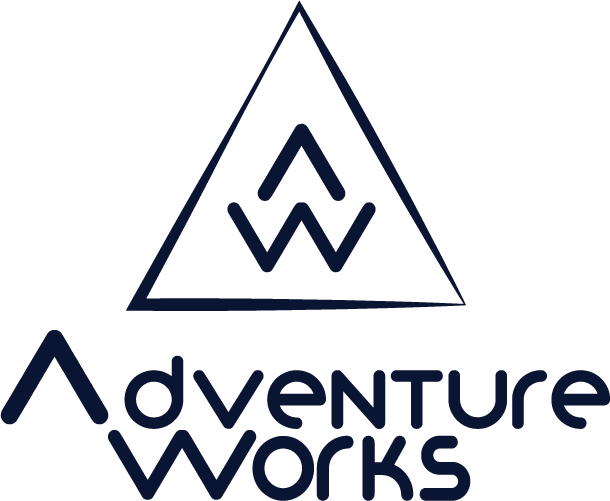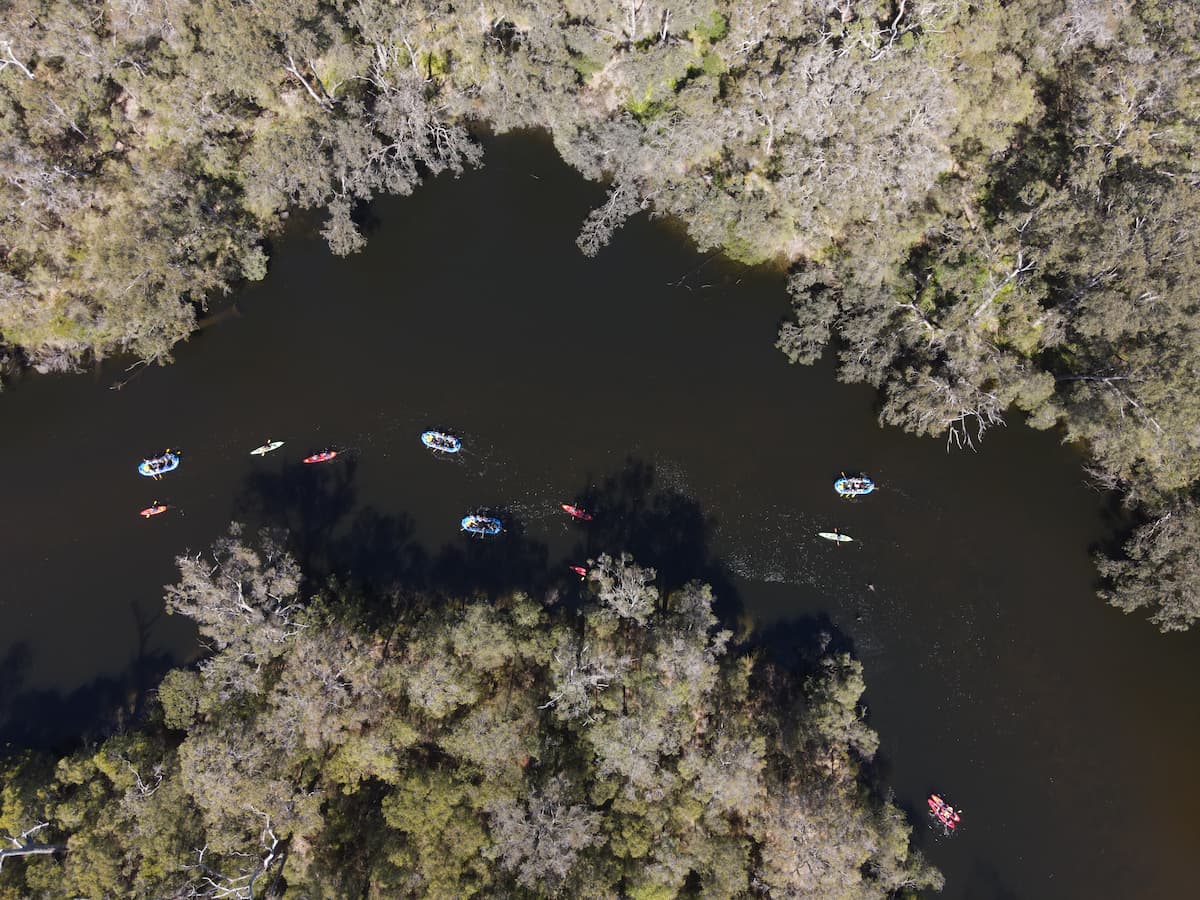FAQs About Our
Social-Emotional
Learning Programs
Get detailed information about our SEL programs and how they benefit students, schools, and families.
What you need to know about our SEL programs
At AdventureWorks WA, we understand the importance of preparing young people for the complexities of life. Our programs are designed to foster resilience, self-discovery, and community connections through engaging and challenging outdoor experiences. Here, you’ll find answers to common questions about our programs. If you can’t find the answer you’re looking for, please get in touch with our friendly team.
AdventureWorks WA was founded by Scott and Mary Wood. Scott is an experienced outdoor professional and leadership specialist with 30 years of experience across Australia. Mary is a healthcare professional, trainer, and coach with 30 years in business management. Together they’ve run outdoor adventure programs for over 25 years, passionately guiding young people on their journey into adulthood.
Social-emotional learning (SEL) helps students develop vital life skills like self-awareness, self-management, social awareness, relationship skills, and responsible decision-making. These skills are crucial for personal growth, academic success, and overall wellbeing.
SEL programs help students regulate their emotions, form positive relationships, and improve their academic performance. They also reduce stress, anxiety, and depression, leading to better mental health and resilience.
AdventureWorks WA involves parents through workshops, webinars, and resources designed to help them support their children’s emotional and social development. This ensures consistent support at home and at school, creating a cohesive environment for growth.
- Student workshops and camps
- Professional development for educators
- Parent engagement activities
- Weekly outdoor activities and reflective exercises
- Community-building activities
AdventureWorks WA collaborates with teachers to develop custom SEL curriculums tailored to their school’s specific culture and needs. We provide tailored resources, lesson plans, and ongoing support to seamlessly integrate SEL into everyday teaching.
AdventureWorks WA offers comprehensive SEL training, including professional development workshops, online courses, and face-to-face training sessions. These programs equip educators with the skills they need to effectively implement SEL strategies and support their students’ development.
AdventureWorks WA in-school SEL workshops provide engaging and interactive learning experiences for students and teachers. These workshops focus on vital SEL skills like self-awareness, emotional regulation, and relationship-building, ensuring the learning experience is relevant, practical, and immediately applicable.
Improving Sleep and Mood: Spending time in nature can reset the circadian rhythm, enhancing sleep and mood.
Connecting with the Environment: Students experience nature directly, fostering a deeper connection with the natural world.
Building Teamwork: Outdoor activities help build teamwork and connections outside traditional friendship groups.
Creativity and Reflection: The natural environment provides space for creativity, reflection, and self-discovery.
Proven Benefits: Research shows that being outdoors improves concentration, lowers stress and anxiety levels, increases empathy, restores mental and physical capacities, reduces risk of depression, and speeds up stress recovery.
Learning Through Discomfort: Experiencing challenges and discomfort helps young people grow, learn about their strengths, and build resilience. It’s essential for personal development.
Nature’s Lessons: Like nature, humans thrive when facing challenges. Avoiding discomfort can lead to stagnation. Success and comfort are poor teachers, while failure and challenges offer opportunities for growth.
Building Resilience: Our camping programs push young people out of their comfort zones, helping them learn about their strengths and build the resilience they need to face life’s challenges. Parents should equip their children with the skills to handle life independently, fostering confidence and inner strength.
Connecting with Nature and Building Appreciation: Camping in tents brings young people closer to nature, teaching essential survival skills and fostering resilience and appreciation for modern comforts. Camping also encourages students to spend more time outdoors and enjoy the simplicity of camp life.
Developing Life Skills and Encouraging Responsibility: Cooking independently helps students develop life skills, make decisions, take responsibility, and work collaboratively. It’s essential for learning self-sufficiency and contributing to their community.
Variety of Options to Ensure Adequate Nutrition: We offer a wide selection of food to cater to different preferences and dietary needs. If a child is a picky eater, there will always be alternatives like cereal and milk available to ensure they don’t go hungry. Experiencing limited food choices can build resilience and cultivate gratitude.
Carrying Essentials and Practical Packing: On expeditions, students will carry backpacks with essentials. For journeys or camps, they only need to carry a daypack, while all other luggage and equipment will be transported by our logistics team.
Students are asked to bring one small soft bag with their belongings. Our logistics team is not able to transport large hard cases or multiple bags.
Varied Facilities and Teaching Personal Hygiene: Facilities vary by location. Some campsites offer basic amenities, while remote expeditions may require students to build and manage their own hygiene facilities. Maintaining hygiene and privacy is a top priority.
Students will learn the skills they need to manage hygiene and privacy in the outdoors. Facilitators support young women in managing their menstrual cycles, ensuring they can enjoy the camp experience without worry.
Separation from Technology and Encouraging Presence: Leaving phones at home allows students to be present, connect deeply with peers, and engage with the environment. It reduces distractions, mitigates the onset of technology addiction, and fosters real-time communication and self-reflection.
Pushing Boundaries and Building Resilience: Our camps encourage young people to push beyond their comfort zones in a safe, responsible way. Experiencing discomfort and challenge in a safe environment helps young people discover their strengths, build resilience, and develop coping skills for future challenges.
Safety First – Enclosed Footwear Required: Students must wear enclosed, comfortable footwear like trainers or hiking boots for safety in outdoor conditions. Crocs or slides are not allowed due to the lack of protection they offer against slips, falls, and other injuries.
Encouraging Growth and Fostering New Connections: Staying within familiar friendship groups keeps students in their comfort zones. Mixing students with different peers breaks down social barriers, encourages them to make new connections, and fosters a broader sense of self and community.
Encouraging Participation and Supporting Growth: We understand these concerns and encourage open conversations about the value of stepping into challenges. Experiencing discomfort helps young people realise their capabilities, grow, and develop resilience as individuals.
Supporting Students and Encouraging Independence: Homesickness is common, especially for those new to being away from home. We work with students, teachers, and the group to support them through it, helping them build strong social bonds and resilience.
Preparation and Skills: We provide a comprehensive packing list for all weather conditions and teach students how to manage the elements. Getting cold, wet, or dirty is part of building resilience.
Learning Through Experience: Students learn the consequences of their actions and develop self-management skills. Safety is paramount, and we take necessary actions to ensure students’ wellbeing.
Comprehensive Safety Measures: We carry UHF radios and satellite phones, and have dedicated program vehicles. We also have current emergency management plans and conduct risk assessments for all activities and locations.
Insurance and Accreditation: AdventureWorks WA holds public liability/indemnity insurance and WorkCover insurance, and we’re a registered Tourism Operator. We have also completed the Tourism WA business accreditation program.
Qualified Staff: All AW staff are extensively trained and many are qualified teachers. We hold various certifications, including First Aid & CPR, Community Surf Rescue/Bronze Medallion, Youth Mental Health First Aid, and Working with Children.
Continuous Training: Our team undergoes regular training in facilitation, coaching techniques, Positive Psychology, and other relevant areas to ensure the highest level of safety and expertise.
Extensive Coverage: AdventureWorks holds $20 million in public and professional liability insurance, along with a DBCA commercial operator licence. All our facilitators are qualified and trained, and we have robust risk and emergency management plans in place.
Have more questions? Contact us!
We’re here to help you every step of the way. If you have any further questions or need more information, don’t hesitate to reach out.



